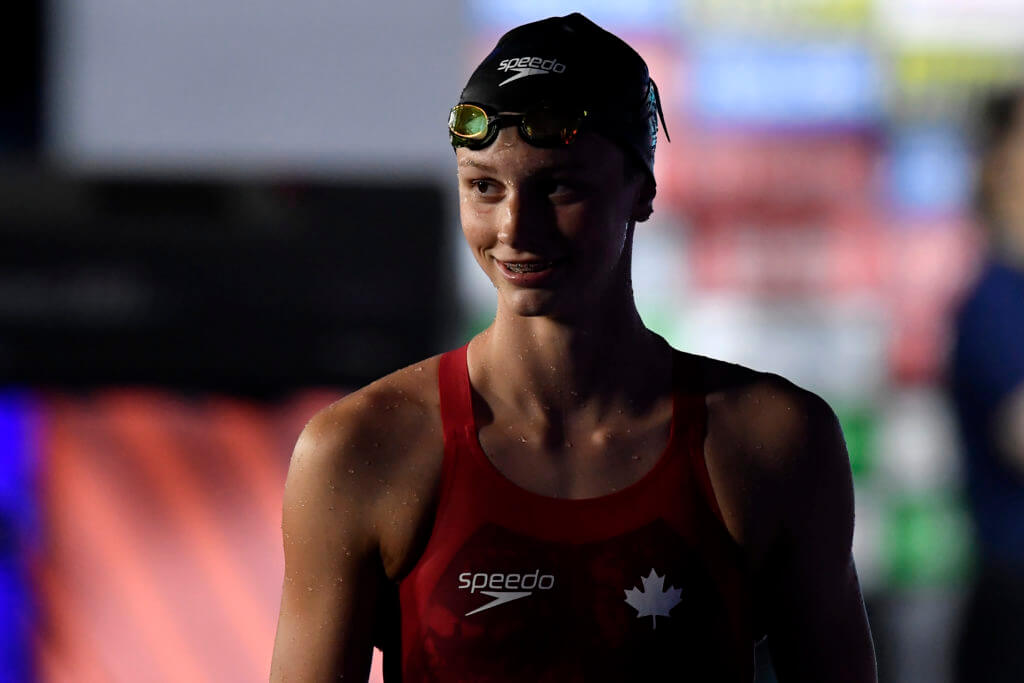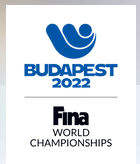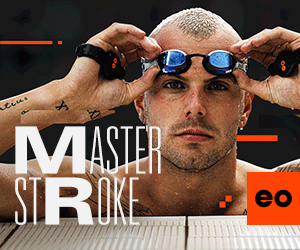Swimming’s Latest Teen Sensation: Summer McIntosh Has Officially Arrived; Now Pointing Toward Greatness

Editorial content for the 2022 FINA World Championships coverage is sponsored by eo SwimBETTER.
See full event coverage.
Swim faster... faster, with game-changing data insight into your technique. eolab.com #eoSwimBETTER

Summer McIntosh Has Officially Arrived; Now Pointing Toward Greatness
There have been signs of this pending emergence over the past year. Summer McIntosh was an Olympic finalist at 14 years old, narrowly off the podium in the 400 freestyle before she was entrusted with the leadoff leg of Canada’s 800 free relay. She debuted as a freestyler, but weeks after her 15th birthday, she joined the Toronto Titans of the International Swimming League as the youngest swimmer in the league, and she won five regular-season victories spanning the 400 free, 200 butterfly and 400 IM.
She won an individual silver and two relay medals at the Short Course World Championships in December. March brought a pair of “are you serious?” efforts as McIntosh went 2:05.81 in the 200 fly, just off the time required to win an Olympic medal last year, and 4:29.12 in the 400 IM, almost three seconds quicker than the winning time and good enough to make the teenager the third-fastest performer in history.
McIntosh loomed over the final leadup to the World Championships, her potential across a wide swath of events practically incalculable. Now, we have seen her talent on the biggest stage, against the toughest of competition — and her swimming has lived up to the hype. McIntosh might be five years younger than any of her primary competitors and even her relay-mates on Canada’s squad, but she belongs here, among the best.
In Budapest, McIntosh has already nabbed three medals, one of each color, and that’s with the event pegged as her best still to come. On day one, the Toronto-native did not let Katie Ledecky out of her sight in the 400 freestyle and her silver-medal finish made her the fourth woman in history to crack the 4:00-barrier. The storylines prior to that race focused on Ariarne Titmus breaking Ledecky’s world record in the 400 free and the non-rematch between the two with Titmus opting out of the World Championships, but in the hours after, the question was whether McIntosh, fresh off a two-second personal best, would be the favorite ahead of Titmus and Ledecky by the Paris Olympics in 2024. Such is the momentum that she has built.
But that 400 free success would just be a precursor to Wednesday night, the greatest performance of her career thus far. In the 200 fly final, McIntosh sat in first place through 100 meters, but she took command on the third lap, passing the top two finishers in the event from the Olympics. She pulled away and won by almost nine tenths for her first world title and a new world junior record. The time was 2:05.20, good for 12th-fastest in history.
Less than two hours later, McIntosh handled the first leg of Canada’s 800 free relay, and she clobbered the other leadoff swimmers, a group that included Australian veteran Madison Wilson and 200 free bronze medalist Tang Muhan of China, by almost two seconds. McIntosh opted not to swim the individual 200 free at these Worlds, but her time of 1:54.79 was another world junior record and faster than the winning time in the individual event the day before. That split gave Canada enough of a cushion to be able to hold off China for bronze.
That’s two record-breaking, medal-clinching swims in one night, but the back-to-back did not phase McIntosh. Sure, she’s young enough to be able to recover quickly, but more important is the maturity and presence of mind to successfully compartmentalize her swims.
“I still don’t really realize what I just did, to be honest,” McIntosh said. “It feels like two separate nights. I really just tried to separate the two and really just focus on them individually. I think I did that quite well and kept my brain as low as possible.”
That’s the mentality common to all successful multi-event swimmers. That’s a sign of a swimmer capable of building the résumé necessary to climb the list of the world’s top swimmers.
After a two-day break from racing, McIntosh was back in the pool on the final night of the World Championships to contest the 400 IM. Entering the week, that event was considered her best shot at gold after she swam a mark of 4:29.12 earlier this year, becoming just the fifth woman in history to break 4:30 earlier this year. The other four members of the sub-4:30 club have won multiple Olympic gold medals each.
McIntosh could not quite repeat that form in Budapest, but she built a lead that stretched to more than two seconds by the 250-meter mark, and then she held off American Katie Grimes on the freestyle to secure her fourth medal of the World Championships and her second individual gold with a time of 4:32.04.
After the race, McIntosh admitted in an interview with NBC Sports, “There’s always room for improvement on the time since I’ve been faster quite a while ago.” Well, improvement on her best time would put her in range of the world record, Katinka Hosszu’s nearly-unthinkable mark of 4:26.36 from the Rio Olympics. It’s not unrealistic that McIntosh could flirt with that mark within a year or two.
Why not? So far, there has been no stopping McIntosh in her rapid rise, and it could be only a matter of time before the world junior records she has been breaking right and left turn into plain, old world records.






when your that young ……no fear!!!!!………the canadian women have put an awesome program together…….long live victor davis!!!!!!
Indeed she should have a bright future ahead. I do wish the press would stop writing articles/commentary in ways that put additional pressure on these young athletes. Too many of them have suffered from mental health issues. Most famously Phelps and Schmitt have spoken out, but current stars such as Titmus have also talked about needing a break.
By all means report on Summer’s fabulous swims, but is it really necessary for you to heap this sort of additional pressure on her?
Barbara, the champions are determined by mental toughness; it is a necessary prerequisite to in-water stamina. Dont allow that to sound callous to you; it isn’t. And taking breaks from the heavy intensity of any discipline is the way it must be done. A champion, in particular, must continually re-learn love of what he does, what she does. The legends just accomplish resilience and recovery more quickly and, far more importantly, more thoroughly.
I think Summer has it; I think Katie Grimes has it, too. Those who are to be legends feed hungrily on adversity! I believe, that for champion swimming women of 15 and 16, hormonal swings and body changes are far greater dangers than burnout…or from their either believing OR feeling cornered or cowed by their headlines and fame.
Much more power to the Canadian 100-pound woman-locomotive. So much fun to watch and to cheer her on! We’re behind you all the way, Summer.
I completely agree with Barbara. The focus of coverage of great current or/and potential champions is to celebrate what they’ve achieved. Speculation of what “is likely yet to come” is a completely unnecessary exercise in extra pression and added expectations that nobody actually needs. Wether Summer drops six seconds to hit 4.26 or not in the 400IM is completely irrelevant to who she already is and adds apparent pressure on her to go for it with not reason. I applaude coverage, but i’d prefer to have the useful type.
or less than 3 seconds considering his 4:29.12 (Toronto Pan Am Centre, Toronto; March 4, 2022).
Hahahahaha – it is only a matter of time before she holds multiple world records at one time.